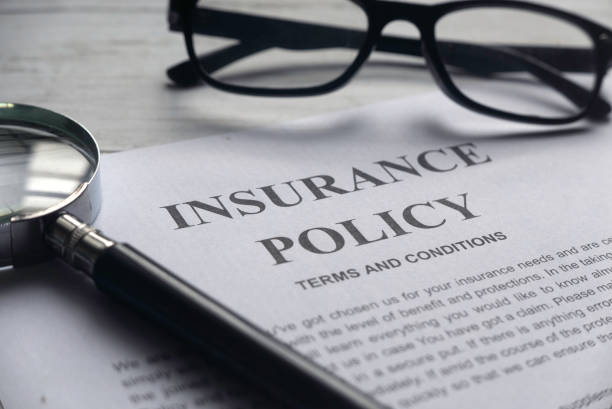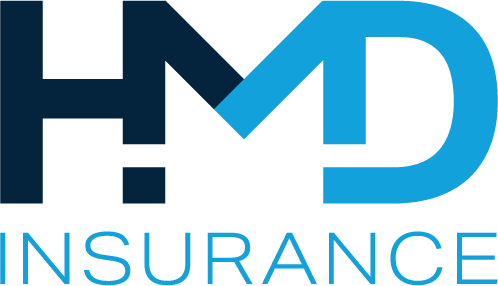
Understanding how body corporate insurance and building insurance work is essential for property owners, particularly those residing in strata schemes. These two types of insurance serve distinct yet interconnected purposes. In this article, we will explore the differences, coverage specifics, and the importance of having both types of insurance, ensuring that you are well-informed about your responsibilities and rights as a lot owner in a residential strata community.
What is Body Corporate Insurance and How Does it Differ from Building Insurance?

Body corporate insurance, also referred to as strata insurance, is a specialised insurance policy designed to protect the collective interests of the owners corporation, which manages the common property in a strata scheme. This insurance provides coverage for the common areas, fixtures, and fittings that belong to the body corporate, including swimming pools, gardens, hallways, and external walls of the building. Body corporate insurance is a legal requirement, ensuring that the community of property owners is safeguarded against significant financial losses resulting from incidents such as fire, storm damage, or vandalism.
While body corporate insurance protects common property and shared assets, building insurance is typically the responsibility of individual lot owners. Building insurance covers the structure of your specific unit or townhouse against risks like fire, theft, and natural disasters. In contrast, body corporate insurance focuses on the communal aspects of the strata scheme. The crucial distinction lies in the coverage scope; building insurance is for the individual property owner, while body corporate insurance is for the collective group, covering the common property and liabilities that arise from shared ownership.
Having both body corporate insurance and building insurance is important for comprehensive protection. Body corporate insurance covers the common areas and public liability, ensuring that the owners corporation is protected against claims arising from accidents or damages that occur in shared spaces. On the other hand, individual building insurance provides coverage for personal belongings and fixtures within your unit. This dual layer of protection ensures that both the communal and personal aspects of strata living are safeguarded, reducing the financial burden on individual owners in the event of a claim.
What Does Body Corporate Insurance Typically Cover?
Body corporate insurance typically includes coverage for common property assets, which are shared by all owners within the strata scheme. This may encompass buildings, gardens, swimming pools, and other shared facilities. The insurance cover must ensure that these common areas are adequately maintained and protected against risks like fire, storm damage, or acts of vandalism. The insurance policy will outline the sum insured for these areas, providing a financial safety net for the owners corporation to manage repairs or rebuilding efforts in the event of a loss.
Public liability insurance is a critical component of body corporate insurance, protecting the owners corporation against claims arising from injuries or damages that occur on common property. If a visitor were to slip and fall in a common area, the body corporate would be liable for any claims made against them. The public liability coverage ensures that the owners corporation can address such claims without putting undue financial pressure on individual property owners, thus maintaining the stability of the strata community.
Another important aspect of body corporate insurance is the reinstatement and repair coverage. In the event of damage to common property, this insurance provides the funds necessary to restore the area to its original condition. This could include repairs to shared facilities, replacing damaged fixtures, or repainting common areas after an incident. The ability to reinstate common property quickly not only preserves the value of the strata scheme but also maintains the quality of life for residents, making this coverage a vital part of any body corporate insurance policy.
Does Body Corporate Insurance Cover Building Insurance?

Body corporate insurance is important for people living in strata units. This type of insurance usually includes building insurance. It helps protect the shared areas and the building itself. However, it does not cover everything. For example, if you own personal items in your unit, you will need home contents insurance to protect those belongings. This is a separate policy that covers your personal possessions.
If you are a landlord, you might need landlord insurance as well. This type of insurance helps protect your investment property and can cover loss of rent if your tenant does not pay. An insurance broker can help you find the right policies for your needs. They can explain what body corporate cover includes and what other types of insurance you may need.
When making an insurance claim, it’s important to know what is covered under your policies. Body corporates usually have insurance that covers the building and common areas, but individual owners must have their own insurance to protect their contents. This means that each owner must understand their responsibilities and ensure they have the right coverage. Having both body corporate insurance and personal policies is an insurance must for full protection.
Do Lot Owners Need Their Own Building Insurance?
Yes, lot owners absolutely need their own building insurance policies. While body corporate insurance covers the common property and shared liabilities, it does not extend to the internal structure or personal belongings of individual units. Home insurance is essential for protecting your personal possessions, such as furniture, electronics, and other valuable items, against risks like theft or damage. Additionally, building insurance protects the structural integrity of your unit, ensuring that you are financially covered for any incidents that may occur within your own living space.
Building insurance complements body corporate insurance by providing a safety net for individual property owners. For example, if a fire were to break out in your unit, your building insurance would cover the repairs needed for your property, while the body corporate insurance would address any damage caused to the common areas. This separation of coverage allows for a more comprehensive protection strategy, ensuring that both communal and personal risks are managed effectively. By having both policies, you can secure peace of mind knowing that every aspect of your property is protected.
Many lot owners mistakenly believe that body corporate insurance is sufficient to cover all their insurance needs. This misconception can lead to significant financial risks, as body corporate insurance will not cover personal belongings or internal damage within individual units. It’s essential to understand that while body corporate insurance provides crucial protection for common property and liabilities, individual building insurance is necessary to ensure the personal property and structure of your unit are adequately protected. Clarifying these misconceptions can prevent potential issues in the future and reinforce the importance of comprehensive insurance coverage.
How Does the Body Corporate Management Handle Insurance Premiums?

Insurance premiums for body corporate insurance are typically calculated based on the collective risk factors associated with the strata scheme, including property type, age, location, and coverage needs. The body corporate must assess these factors to determine the appropriate level of coverage and the associated premiums. The management of these premiums is crucial, as they directly affect the financial health of the owners corporation and the levies charged to individual lot owners. Regular reviews of insurance policies can help ensure that the coverage remains relevant and adequate for the evolving needs of the strata community.
Several factors influence the body corporate insurance premiums, including the size and condition of the building, the level of coverage desired, and the claims history of the owners corporation. If a strata scheme has a history of frequent claims, the premiums may be higher due to perceived increased risk. Additionally, the presence of high-value common property assets, such as pools or gyms, may also elevate the premium costs. Understanding these factors can help lot owners engage more effectively with their body corporate manager in discussions about insurance premiums and coverage.
Effective communication with your body corporate manager is essential when it comes to insurance matters. Lot owners should feel empowered to ask questions about the insurance policies in place, the coverage details, and how premiums are calculated. Engaging with the body corporate manager can lead to better understanding and potentially finding ways to reduce premiums through collective actions, such as improving the security of common areas. Additionally, participating in owners corporation meetings allows lot owners to voice their concerns or suggestions regarding insurance matters, ensuring that the body corporate management remains accountable to the needs of the community.
What Should Owners Corporation Members Know About Claims?

Filing a claim under body corporate insurance involves a straightforward process, typically initiated through the body corporate manager. Owners corporation members should familiarise themselves with the claims procedure outlined in their insurance policy. In the event of damage to common property, it is essential to report the incident promptly and provide as much detail as possible, including photographs and descriptions of the damage. This thorough documentation can expedite the claims process and ensure that the necessary repairs are conducted swiftly, preserving the integrity of the common property.
Loss of rent coverage is an often-overlooked aspect of body corporate insurance. In situations where common property damage renders a unit uninhabitable, landlords may experience a loss of rental income. Body corporate insurance can provide coverage for this loss, helping property owners maintain financial stability during the repair period. Understanding the specifics of loss of rent coverage is crucial for landlords, as it ensures that their investment is protected in the event of unforeseen incidents affecting their rental income.
Common issues with claims on common areas often arise from misunderstandings about what is covered under the body corporate insurance policy. Disputes may occur regarding the responsibility for repairs or damage, particularly if there is ambiguity in the insurance documentation. It’s important for owners corporation members to be well-versed in the terms of their policy and the specific coverage it provides. Open communication among lot owners and the body corporate manager can help mitigate these issues, ensuring that claims are handled smoothly and accurately.
Conclusion
Body corporate insurance typically includes building insurance for shared areas and the structure of the strata unit. However, it does not cover personal belongings, so you will need home contents insurance for that. If you are a landlord, landlord insurance is also important to protect your investment.
It’s essential to work with an insurance broker to understand what body corporate cover includes and make sure you have the right policies in place. This way, you can ensure you have the insurance that covers everything you need to protect your home and belongings.





